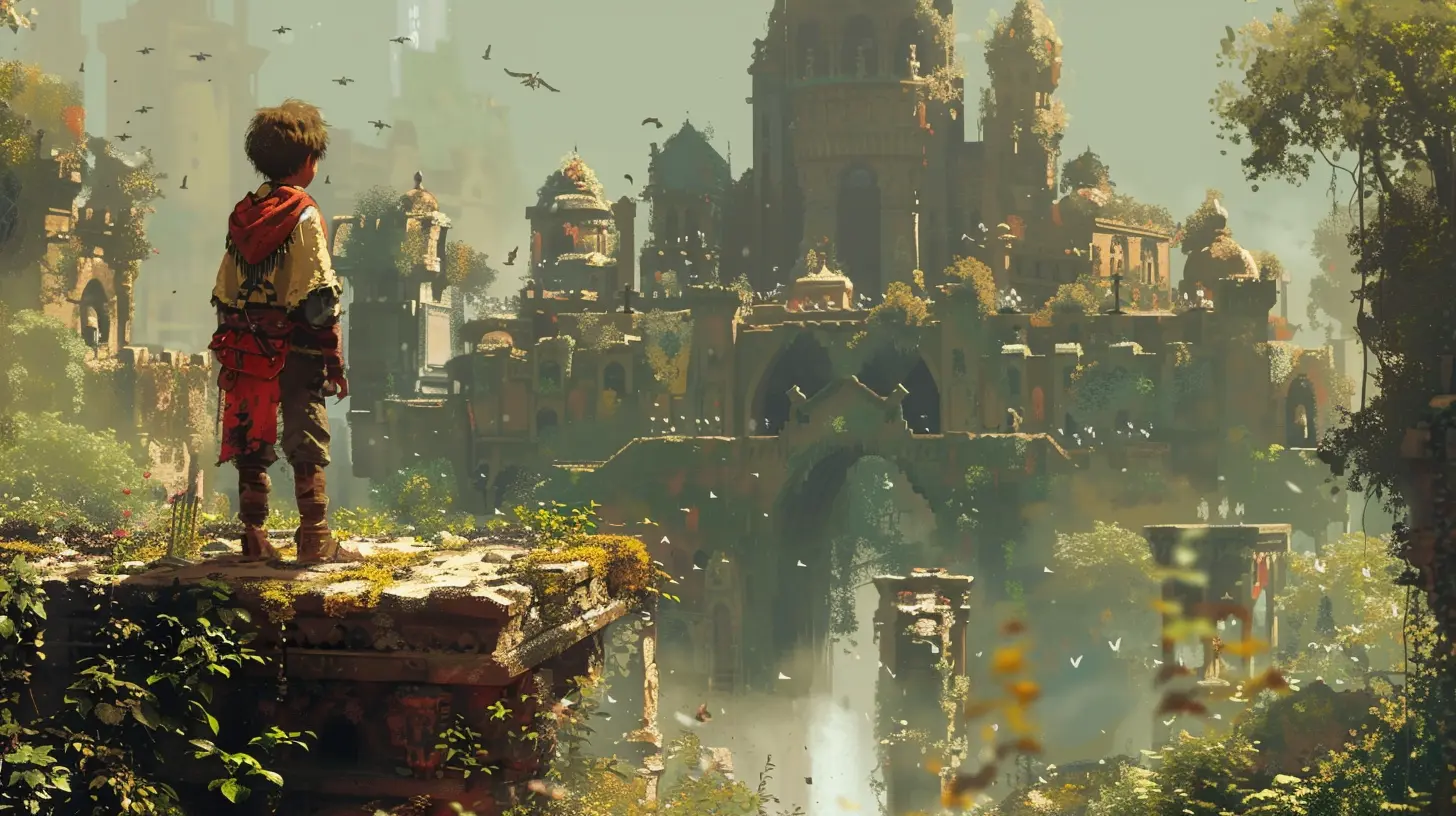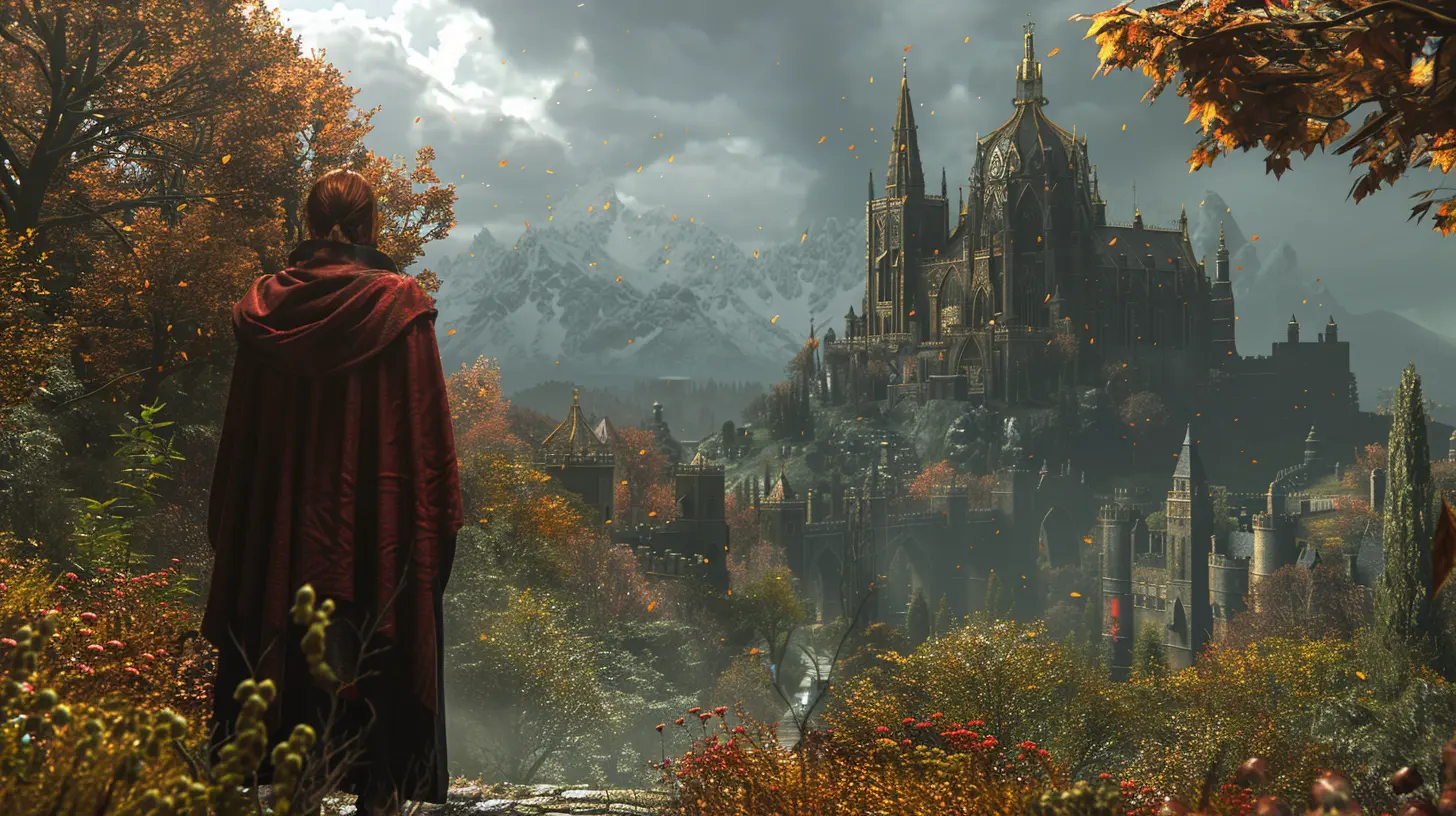Storytelling Techniques to Engage Players in Video Games
16 December 2024
In the vast, pixelated world of video games, storytelling is the lifeblood that takes players from button-mashing enthusiasts to emotionally invested adventurers. It’s the secret sauce that turns an average game into an unforgettable experience. Think about it—what makes The Last of Us, Red Dead Redemption 2, or even classics like Final Fantasy VII resonate so deeply? Storytelling. But not just any storytelling—it's storytelling tailor-made for interactivity, where the player isn't just watching a tale unfold but is living it.
So, what separates the "meh" games from the ones that leave you staring at the credits, emotionally wrecked (in the best way possible)? That's what we’re diving into here—powerful storytelling techniques that keep players glued to the screen, controller in hand, hearts invested. Grab a seat, folks; we’re going full throttle into the storytelling hacks that make video games wildly engaging.
Why Storytelling Matters in Video Games
You might think, "It’s just a game. Who cares about the story as long as I’m having fun?" Well, wrong. While gameplay mechanics are crucial, a strong narrative transforms that fun into something meaningful.Storytelling gives players a reason to care. Sure, running around a map collecting loot is enjoyable, but what happens when that loot has a purpose? When you’re gathering resources to save a dying NPC you’ve grown attached to? Suddenly, it's not just gameplay—it’s personal.
Narratives also provide context. They answer the "why" behind your actions, taking the gameplay loop from repetitive to purposeful. Without storytelling, Skyrim is just a bunch of random missions. With a story? You’re the Dragonborn, destined to battle dragons and shape the fate of Tamriel. See the difference? 
Techniques to Crank Up the Emotional Dial
Now, let’s get into the good stuff. What specific storytelling techniques keep players invested? How do developers weave narratives players will remember years after the credits roll?1. The Hero’s Journey: Classic, But It Works
Ever heard of Joseph Campbell’s Hero’s Journey? If not, let me break it down real quick—it’s basically a universal storytelling structure where an ordinary character is thrust into extraordinary circumstances, faces challenges, and transforms into something greater.This framework is everywhere in gaming. Link’s journey in The Legend of Zelda? Classic Hero’s Journey. Geralt’s transformation over the Witcher series? Same deal. Players relate to these arcs because they mirror personal growth in real life. They take us from zero to hero, and damn, does it feel good.
Using this technique in games builds a connection between the player and the protagonist. When you see a character grow, you're not just watching them—you’re experiencing it with them.
2. Environmental Storytelling: Show, Don’t Tell
Let’s be real—nobody wants walls of text explaining a game’s backstory. That’s snooze-button territory. This is where environmental storytelling swoops in like a knight in shining armor.Think of Dark Souls. The game doesn’t spoon-feed you lore. Instead, it uses cryptic item descriptions, dilapidated ruins, and haunting NPC dialogue to piece together its rich world. The environment whispers stories, and as a player, it feels rewarding when you uncover those secrets on your own.
Environmental storytelling immerses players without pulling them out of the gameplay. It’s organic, subtle, and, when done right, absolutely brilliant.
3. Choices That Matter
You know those moments when a game throws a wrench into your plans with a decision that makes you sit there, controller in hand, sweating bullets? That’s the stuff of legends. Games like Mass Effect, The Witcher 3, or Detroit: Become Human excel because they give players agency in shaping the story.Here’s the kicker: those choices need consequences. If your decisions feel like they’re just cosmetic, you’re robbing players of emotional investment. But when a seemingly minor choice snowballs into a gut-punching plot twist? That’s storytelling gold.
And don’t just make choices black and white. The grey area, where every option feels like both the right and wrong decision, is where players are most engaged. Let them grapple with their choices. Let them feel the weight of their decisions.
4. Relatable Characters with Depth
You can have the best plot in the world, but if your characters are one-dimensional cardboard cutouts, none of it will matter. Relatable, multi-faceted characters are the heart of any great story.Let’s look at Arthur Morgan from Red Dead Redemption 2. He’s a morally complex outlaw with dreams, regrets, and a deeply human side. Players don’t just play as Arthur—they connect with him.
What makes a character relatable? Flaws. Vulnerabilities. Motivations. No one connects with a perfect hero. Give them internal struggles, conflicting priorities, or even moments of doubt. Let players see themselves in the character, and they’ll be hooked.
5. Pacing: Timing is Everything
A good story is like a rollercoaster—it needs peaks, valleys, and just the right amount of build-up before the big drops. If your story is all action or all slow moments, it’s not going to land.Take God of War (2018), for example. It balances bombastic battles with quiet, tender moments between Kratos and Atreus. These moments let players breathe, reflect, and gear up for what’s next.
Pacing isn’t just about slowing things down—it’s about keeping the player engaged at every moment. Too fast, and you overwhelm them. Too slow, and you bore them. Nail the rhythm, and you’ve got a story players won’t want to put down.
6. Themes That Resonate
Great stories often explore universal themes—loss, redemption, love, revenge. These are the undercurrents that give a narrative weight. When a game taps into these emotions, it creates a deeper connection with the player.Think about Undertale. Beneath its quirky humor lies a game about compassion, choices, and the consequences of your actions. It resonates because it speaks to something real.
Themes give your story direction. They’re the glue that holds all the elements together, creating a unified experience that sticks with players long after the game is over. 
Breaking the Fourth Wall: A Risk Worth Taking
Sometimes, the best way to engage players is to throw out the rulebook entirely. Games like Undertale or Metal Gear Solid do this brilliantly by breaking the fourth wall. When a game acknowledges the player’s role in the story, it creates a meta-layer of engagement.Remember when Psycho Mantis in Metal Gear Solid read your memory card? Or when Undertale made you reconsider your choices by directly addressing you? These moments are unforgettable because they make the story personal.
Breaking the fourth wall isn’t for every game, but when used sparingly, it’s a powerful tool for creating memorable experiences. 
Emotional Payoff: Stick the Landing
Here’s the harsh truth—your story is only as good as its ending. A great ending ties everything together and leaves players satisfied (or emotionally wrecked, in the best way). A bad ending? It ruins the entire experience.Look at Red Dead Redemption 2. Its ending is heartbreaking but beautifully ties up Arthur’s arc. It’s unforgettable because it delivers on the themes and character development set up throughout the game.
Whether your ending is bittersweet, triumphant, or open-ended, make sure it feels earned. There’s nothing worse than investing hours into a game only to be hit with a rushed or lazy conclusion.
The Future of Storytelling in Games
As technology continues to evolve, so does the potential for storytelling in video games. With advancements in AI, VR, and procedural generation, developers have more tools than ever to create immersive, player-driven narratives.But at the end of the day, it’s not the tech that makes a great story—it’s the heart. Emotional resonance, meaningful characters, and well-crafted plots will always be the foundation of engaging storytelling.
The future is bright, and if developers continue to innovate while staying true to the essence of storytelling, we’re in for some unforgettable gaming experiences.
Final Thoughts
Storytelling in video games isn’t just an art—it’s a science. It’s about creating a narrative that doesn’t just entertain but connects on a deeper level. Whether it’s through relatable characters, clever pacing, or moral dilemmas that keep players up at night, these techniques are what elevate good games to legendary status.So next time you pick up a controller, pay attention to the story. When done right, it’s not just something you play—it’s something you feel.
all images in this post were generated using AI tools
Category:
Video Game DesignAuthor:

Francesca West
Discussion
rate this article
10 comments
Virginia Rhodes
This article beautifully highlights the art of storytelling in video games. Engaging narratives elevate the player experience, making them more than just participants—they become emotionally invested. By integrating character development and immersive worlds, developers can create memorable journeys that resonate long after the game is over. Truly insightful!
April 7, 2025 at 4:16 PM

Francesca West
Thank you for your thoughtful comment! I'm glad you found the article insightful; storytelling truly enriches the gaming experience and creates lasting connections.
Jude McMahon
Who needs a therapist when you have video games? Engaging stories make us laugh, cry, and question our life choices—all while dodging pixelated monsters. Keep those plots twisty and the snacks close! 🎮🍕
March 5, 2025 at 5:41 AM

Francesca West
Absolutely! Video games offer immersive narratives that can provide emotional relief and introspection, making them a unique form of storytelling that resonates deeply with players.
Easton McAdams
Absolutely loved this article! Engaging storytelling can transform a game into an unforgettable experience, connecting players on a deeper level.
February 3, 2025 at 6:03 AM

Francesca West
Thank you! I'm glad you enjoyed it. Engaging storytelling truly enhances the gaming experience!
Virginia Carey
In pixels and prose, worlds unfold, Narratives weave, emotions mold. Engage the heart, let tales ignite— In gaming's realm, dreams take flight.
January 27, 2025 at 3:26 AM

Francesca West
Thank you! Your poetic description beautifully captures the essence of storytelling in gaming and how it elevates player experiences.
Nicole Rogers
Great read! Engaging storytelling in video games makes such a difference. I love how a well-crafted narrative can draw me in and keep me invested. Can’t wait to see how developers continue to innovate in this area!
January 12, 2025 at 4:51 PM

Francesca West
Thank you for your enthusiasm! I completely agree—innovative storytelling truly elevates the gaming experience. Exciting times ahead for developers!
Mara Wallace
This article effectively highlights essential storytelling techniques that can significantly enhance player engagement. By integrating character development, branching narratives, and emotional depth, developers can create immersive experiences that resonate with players. It’s a reminder of the power of storytelling in gaming. Well done!
January 2, 2025 at 3:57 PM

Francesca West
Thank you for your insightful comment! I'm glad you found the article highlights valuable for enhancing player engagement through storytelling.
Zephyrwind McHugh
Great insights! Engaging storytelling transforms gaming into unforgettable adventures, inspiring players to connect and explore new worlds together!
December 27, 2024 at 4:58 AM

Francesca West
Thank you! I'm glad you found the insights valuable. Engaging storytelling truly enriches the gaming experience and fosters connection among players.
Julianne Barker
This article offers valuable insights into effective storytelling techniques that can significantly enhance player engagement. By examining narrative structures and character development, authors can create immersive experiences that resonate with players. Thank you for sharing these useful strategies for improving game storytelling!
December 20, 2024 at 4:37 AM

Francesca West
Thank you for your thoughtful comment! I'm glad you found the insights on storytelling techniques helpful for enhancing player engagement. Happy gaming!
Mariana Franco
Engaging storytelling techniques are crucial for enhancing player immersion in video games. By utilizing non-linear narratives, character development, and interactive choices, developers can create emotionally resonant experiences. Balancing gameplay mechanics with a compelling storyline ensures that players remain invested and motivated to explore the game's world further.
December 17, 2024 at 3:57 AM

Francesca West
Absolutely! Effective storytelling not only enriches the gameplay experience but also deepens player connection to the game world. Non-linear narratives and interactive choices are essential tools for achieving this immersion.
Graham Cole
Great insights on storytelling! Engaging narratives can transform a game into an unforgettable experience. By combining character development, immersive worlds, and player choice, developers can truly capture players' hearts and minds. Excited to see how these techniques evolve!
December 16, 2024 at 5:28 AM

Francesca West
Thank you! I completely agree—storytelling is crucial for creating memorable gaming experiences. I'm excited to see how developers innovate in this space!
MORE POSTS

The Pros and Cons of Free-to-Play Models in MMOs

Why Nintendo’s Simplicity Is Its Greatest Strength

Using Storyboards and Animatics to Plan Game Cutscenes

The Role of Physics Engines in Game Design

Reasons Why Playing Healer is the Most Rewarding Role in MMOs

How to Choose the Perfect Racing Wheel for Your Gaming Setup

The Art of Environmental Storytelling in Games